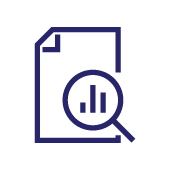You’ve had many adventures, and there are many more to come. In between them, you need a great place to come home to.
Key Features
-
 Variety of Financing Programs
Variety of Financing Programs
-
 Competitive Rates
Competitive Rates
-
 Refinancing Available
Refinancing Available
- Purchase or refinance your home with Montana Credit Union
- Competitively low rates for home purchase, refinance, or construction
- Available for primary residence, second homes, or vacation homes
- A wide range of terms customized to your unique situation
- A wide range of financing programs available:
- Fixed rate mortgages
- Adjustable rate mortgages (ARMs)
- USDA Rural Housing Loans
- FHA Loans
- VA Loans
- First-Time Homebuyer options
- Helpful loan advisors with working knowledge of the local real estate market
- Debt protection available
- Free pre-approval for extra confidence when it comes to securing financing
- Refinance your current home to potentially lower your rate
- Local decision-making and processing in North Central Montana
- Attentive, friendly service from start to finish
Want to know more? Call us at 727-2210 to schedule an appointment, or submit an application to get started today!
Should I choose a Fixed Rate or Adjustable Rate (ARM) Mortgage?
Fixed Rate Mortgages are designed for long term ownership and for homeowners who want to eliminate all risk of future interest rate adjustments. ARM mortgages are for homebuyers who want to lower their payments for a specified period of time. The difference between a Fixed Rate and ARM is based upon your plan to live in the property, the interest rate risk you are willing to take, and the mortgage payment that you are comfortable paying each month.
Why do I need Mortgage Insurance?
Mortgage Insurance is an instrument of protection for the mortgage lender in the unlikely event of default of the mortgage. Mortgage Insurance is NOT insurance for the homebuyer and is a separate insurance instrument than a homeowners insurance or a life insurance policy. Mortgage Insurance premiums are paid by the homeowner and are required on loans that have a loan to value above 80% (IE: loans with less than 20% down). FHA Mortgages always require Mortgage Insurance.
How does the approval process work?
Typically, there are 3 steps in getting approved for a mortgage. Initially, you must submit a credit application (IE: Name, SSN, DOB, Address, etc.). The lender then will pull credit and render an initial underwriting decision. Then, the borrower's employment, income, and asset information are reviewed for an initial loan approval. Finally, the lender will review the specifics of the property being financed including the appraisal, title insurance, homeowners insurance, sales contract, and other items needed to determine the viability of the home being purchased (or refinanced). Typically, the approval process takes 2-3 weeks. The key to a successful approval is providing all financial information to the mortgage lender as soon as possible.
What do I need to get approved?
Each loan scenario is different and the full approval will be contingent upon the specific needs that you have for the home purchase (refinance). However, it will be a good idea to organize the following items: Recent pay-stubs, Last 2 years W2 statements, Last 2 years tax returns (if self-employed or commission earner), Last 60 days bank statements, Last 60 days stock/bond/money market account statements, Bankruptcy discharge papers (if applicable), Divorce decree and separation agreement (if applicable).
What is PITI?
PITI stands for Principal, Interest, Taxes, and Insurance. This is an acronym used to signify the total mortgage payment. PITI will also include Mortgage Insurance payments and HOA payments (if applicable). This is the figure that lenders use to calculate your qualification when determining your ability to purchase the home.
When can I lock the Interest Rate?
Interest Rates can be locked once the initial application is completed, the property is under contract (purchase only), and when you commit to do business with us as a lender. Interest Rate locks are valid for a set period of time from when you initially locked. Longer lock periods are available with a nominal increase to the overall mortgage cost.
What is a Seller Concession?
A Seller Concession is a contribution from the seller that you can use towards closing costs and pre-paid escrow (taxes, insurance, interest). FHA loans also allow seller concessions to compensate for down payment assistance. Most loan programs have limits to the seller concession based upon the overall loan structure. This is a great tool to limit your down payment and cash needs at the closing.
What is APR?
APR stands for Annual Percentage Rate. This figure represents the overall yield the lender will earn on the mortgage through the full amortization. This includes the interest rate, prepaid interest, and any mortgage related fees paid by you at the closing. It is important to understand that the APR is not the interest rate and will always be slightly higher than the locked-in interest rate.
How much can I afford?
Your affordability is based upon an analysis of your gross monthly income and the monthly debts that you are currently paying. There are 2 different "debt to income" ratios that lenders will analyze. The first or "Housing Ratio" is a comparison of your monthly mortgage payment divided by your gross monthly income (before taxes). The second or "Total Debt Ratio" is a comparison of all your projected monthly payments (including mortgage) divided by your gross monthly income. Typically, lenders want the "Housing Ratio" to be at or below 30% and the "Total Debt Ratio" at or below 40%. However, every loan scenario is different and these percentage numbers should be used as "benchmark" figures. The most important figure to determine your affordability is your "comfort zone" of a monthly PITI payment.
What is a pre-payment penalty?
A pre-payment penalty is a charge that the lender imposes if your mortgage loan is paid off within a certain amount of time. Typically, pre-payment penalty loans are niche oriented and are only required in certain circumstances. Pre-payment penalties can also be used to lower the overall APR of the mortgage loan. The key is to determine up front if your loan will have a pre-payment penalty.


